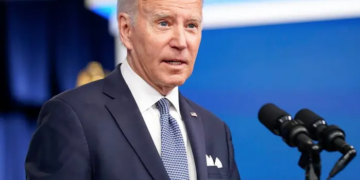The Biden-Harris Administration’s Inflation Reduction Act increased the IRS budget by $80 million. The administration said the budget increase was necessary to fund the salaries of thousands of new agents who were needed to help recover funds from ultra-wealthy tax evaders. They also promised never to weaponize these new agents against “average taxpayers making less than $400,000,” said IRS Commissioner Danny Werfel. None of that happened.
The Administration worked with Democrats to pass the Inflation Reduction Act in 2022, with Vice President Kamala Harris casting the tie-breaking vote in the senate in favor of the bill. This bill granted the IRS $80 million in additional funding over the next 10 years and was earmarked for new hires so the agency would have enough staff to go after the ultra-wealthy. And while Republicans did claw back $20 million, the IRS’s goal of 3,700 new hires in the first year fell short. By summer of 2023, the report proved they had only hired 34.
The Treasury Inspector General for Tax Administration (TIGTA) is the internal watchdog of the IRS. In reports by TIGTA, they found that sixty-three percent of all audits in 2023 were against Americans who made less than $200,000.
But why is the public just now learning this? The IRS released the report the same week the first presidential debate was hosted in Atlanta, back at the beginning of this past summer. Targeting middle-class Americans who do not have access to an army of lawyers and CPAs is not the only thing they tried to slide under the radar.
Economists have started to speculate why the IRS has moved away from going after the wealthiest Americans who have long been accused of using less-than-legal tax loopholes. Earlier this year, President Biden’s most notable moment in his State of the Union Address was to make the wealthy their fair share. But it turns out, they already do. In a recent study, data from 2021 showed the wealthiest 1% of Americans paid almost 50 percent of federal income taxes, yet their income accounted for just 25 percent of the country’s total income.
If the 1% are paying their fair share, how does America fund the national budget and decrease its overall debt?



























